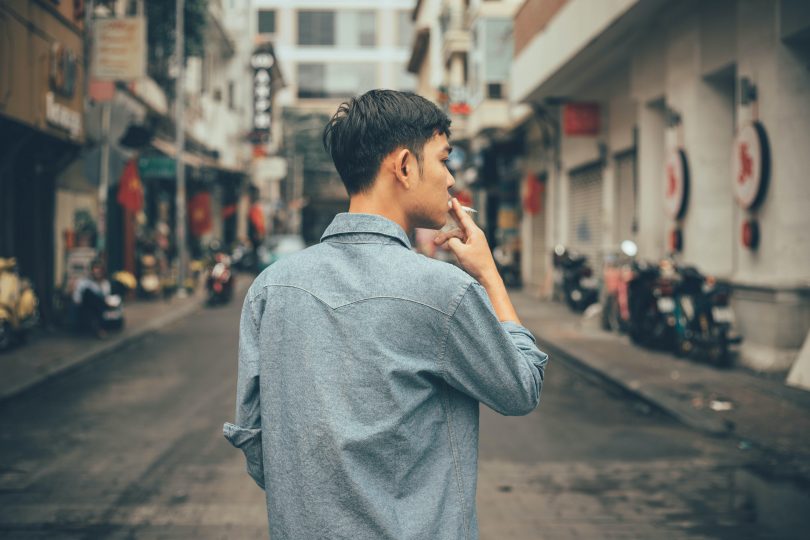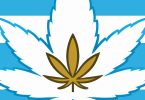The exponential growth in cannabidiol (CBD) popularity across the globe has screeched to a halt in Hong Kong. [1] Thanks to a new bill coming from mainland China, CBD cosmetics were banned in Hong Kong. While this ban started with cosmetics, it has now spiraled outward to include all other CBD products as well. The situation is politically complex, with both sides citing complex research to defend their positions.
CBD Market in Hong Kong
Prior to the mainland Chinese bill, CBD was allowed in Hong Kong as long as the product contained 0% of tetrahydrocannabinol (THC). [2] The Chinese government believes that cannabis, both the varieties containing CBD and the ones with high THC content, are gateway drugs to more serious substances. Because of this, they banned all CBD products. According to the Hong Kong Police, the number of known cannabis users rose by 29% between 2020 and 2021 with users under the age of 21 rose by 27% during that same time. [3] Users in Hong Kong contest that because their CBD products contain no THC, they do not pose the same risk of addiction.
One Country, Two System
Following the Sino-British Joint Declaration in 1984, the mainland Chinese government has maintained a policy they refer to as “one country, two systems”. [4][5] Hong Kong has been deeply rooted in capitalism going back to British colonization, and the central government in Beijing chose to allow them to continue with economic independence for the sake of maintaining stability. This policy is meant to allow Hong Kong to pursue their own economic interests while China would maintain political control over the area. This changed in 2020 with the passage of the Hong Kong National Security Law. [6] Intended to clamp down on secession, subversion, and terrorism, the Chinese government felt this law should apply to economic activities in addition to political ones. Both the United States and UK governments condemned this law for violating the “one country, two systems” policy. [7][8]
Risks Going Forward
For CBD users in Hong Kong, the risks are clear. The Chinese government is allowing any individual or business until November to clear their inventory of CBD products. This means that going forward, CBD users run the risk of legal consequences for continued use. This may not be a problem for users that chose to consume CBD for non-medical reasons, but those who rely on CBD as a medication must choose between health and legal consequences. The other major risk does not exist in Hong Kong, but in Taiwan. The “one country, two systems” approach is the same policy stabilizing relations with the democratic island. As tensions continue to mount between Beijing and Taipei, it may only be a matter of time before the Chinese government decides to step in with their own National Security Law for Taiwan.
Image Reference
References
[1] Grand View Research. (2020). Cannabidiol Market Size, Share & Trends Analysis Report By Source Type (Hemp, Marijuana), By Distribution Channel (B2B, B2C), By End-use (Medical, Personal Use), By Region, And Segment Forecasts, 2022 – 2030. Global Cannabidiol Market Size, Share, Industry Analysis, 2030. https://www.grandviewresearch.com/industry-analysis/cannabidiol-cbd-market[2] The Government of Hong Kong Special Administrative Region. (2022, February 23). LCQ1: Regulation of products containing cannabis [Press release]. https://www.info.gov.hk/gia/general/202202/23/P2022022300361.htm
[3] The Government of Hong Kong Special Administrative Region. (2021, March 29). Total number of cannabis and ketamine abusers increased in 2020 [Press release]. https://www.info.gov.hk/gia/general/202103/29/P2021032900302.htm
[4] Secretariate of the United Nations. (1985, June 12). Sino-British Joint Declaration. https://treaties.un.org/doc/Publication/UNTS/Volume%201399/v1399.pdf
[5] The Practice of the “One Country, Two Systems” Policy in the Hong Kong Special Administrative Region. (n.d.). The Information Office of the State Council. Retrieved September 9, 2022, from https://www.mfa.gov.cn/ce/cels//eng/ci/t1164027.htm#:%7E:text=According%20to%20Deng%20Xiaoping%2C%20%22one,a%20long%20time%20to%20come.
[6] People’s Republic of China. (2020). The Law of the People’s Republic of China on Safeguarding National Security in the Hong Kong Special Administrative Region [Press release]. https://www.elegislation.gov.hk/fwddoc/hk/a406/eng_translation_(a406)_en.pdf
[7] U.S. condemns China’s new security law for Hong Kong, threatens further actions. (2020, June 30). U.S. Retrieved September 9, 2022, from https://www.reuters.com/article/us-china-hongkong-security-usa-idUSKBN2412N9
[8] Faulconbridge, G. (2021, December 15). Britain scolds China over use of security law in Hong Kong. Reuters. Retrieved September 9, 2022, from https://www.reuters.com/world/china/britain-scolds-china-over-hong-kong-2021-12-14/
Image: https://www.pexels.com/photo/young-asian-man-smoking-cigarette-on-street-1972679/










